Exploring the gold mining potential of Ethiopia | MIDROC Ethiopia Technology Group
Dr. Arega Yirdaw, CEO of MIDROC Ethiopia Technology Group
MIDROC Ethiopia Technology Group reached more than 5 billion Birr of sales in 2013 (as oppossed to 3.5 billion Birr three years ago) and currently employs about 7,000 workers. The main factor for the group’s success is the sale of gold…
Interview with Dr. Arega Yirdaw, CEO of MIDROC Ethiopia Technology Group
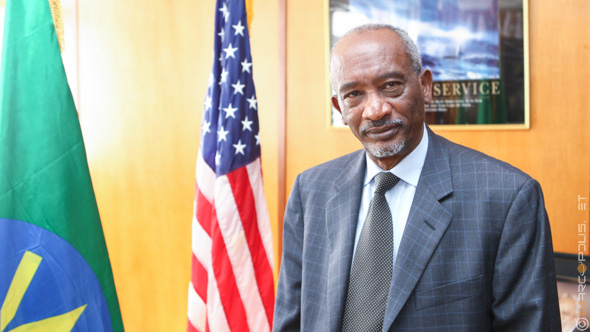
What is your overview of the business climate in Ethiopia and what is your outlook for 2014 and onward?
The business climate in Ethiopia has improved very much and it is still improving. When I came here 13 years ago, the climate was not the same as it is now. For a business person or an investor, the most important things are that there must be sustained peace in the country, it must be a place where large number of consumers exist, which Ethiopia has, it must be a place where trained or trainable labor is available, which Ethiopia has, and the country must have convenient proximity to the world market places and Ethiopia is very strategically located in the world.
The other important factor is the practically of the proclamations issued by government. As time goes by and the government is improving its policies and methods of attracting investors, it does that by continuously improving the law of the land for investors. I see a very bright future for Ethiopia. In addition to this, Ethiopia has unparalleled natural beauty. I can’t imagine if we could package our sunshine and start selling it, how much money would that make. This country has many beautiful things as it relates to nature. We have a culture that is very positive and strong. All of this is good for business. The only thing that the country has to struggle with is making sure that this is known to the world and this is not very easy to do for a less developed country. That is why we have to work hard. It is very good for anyone to invest in this country.
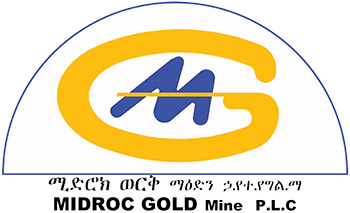
Could you give us a brief history of MIDROC Technology Group since its inception in 2000 due to your leadership? What are some of the accomplishments that have been achieved?
I came to Ethiopia late in 1999 and started my new task in July, 2000. Technology Group started with five companies. Our effort to try to demonstrate the possibility of running or managing several companies under the umbrella of one CEO did work well. As a result we now have reached up to 20 companies. This group, which we call Midroc Ethiopia Technology group, deals with many sectors including education, mining, agriculture, real estate, construction, manufacturing and services. I believe that we have demonstrated that companies can be managed together and synergy can be created within companies to become successful.
We tried not to make it like a holding company like the ones in the West, for the simple reason that the law of the land does not allow that at this stage. Each of these 20 companies is an entity (plc) by itself. Each pays its own tax and so on. It is a worthwhile exercise that provides an opportunity for employees to move within the group from one company to the other. If we find a potential employee who has a potential to grow, then he/she can be a transferred from one to the other, legally.
You can also make trades among these companies which is very helpful. I think we have demonstrated the usefulness of the Group arrangement and as a result others are now emulating the system. You have Derba Group, Horizon Group and others within the larger Midroc Investment in Ethiopia. The Technology Group has been very successful. Now we have reached the level of above 5 billion Birr worth of sales in 2013. We contribute to the availability of hard currency in the country by exporting our products. This amounts to above 200 million US Dollar annually. We have about 7000 employees which is really good, considering 4 family members per employee, totaling 28,000 citizens.
The Technology Group has been very successful. Now we have reached the level of above 5 billion Birr worth of sales in 2013. … We have about 7000 employees which is really good, considering 4 family members per employee, totaling 28,000 citizens.
When it comes to Unity University, we tried to help the country by opening new courses that are not offered by other universities. For example, mining engineering is opened at Unity University simply because it is not available anywhere else in the country. The reason we did that is to create a synergy between MIDROC Gold Mine and Unity University. This mining engineering program will be useful for the future of the country to improve the mining sector. Some of the Mining Engineers at Midroc Gold also teach at Unity University and the students come to the Group and exercise and practice what they are learning at the university. So we are trying to create University-Industry Partnership. If you are in a developing country, you need to tap everybody’s knowledge so that the country can benefit from all.
MIDROC Technology Group consists of about 20 companies. Which industries are the most profitable so far?
Midroc Gold today is a profitable company; there is no question about it. The others are also very profitable. The Technology Group companies are divided in such a way that some export and other engage in substituting imports. For example, instead of buying floor plastic tile from outside, we are now producing tiles in our factory, because 70% of the material is found locally. We call such kinds of activities “import substitution”. Our focus on import substitution is essential since hard currency is very important for a developing country.
There are also companies that give services like transportation, security, supermarket etc. There are engaged in serving the people. More or less, all of them are profitable but as time goes by, they face more competition because the country is opening up and a lot of new companies are starting to compete with us, which is good news. As a result, we have to work harder, smarter, working environment in a business world gets lubricated by healthy competition. I would say that over the last 13 years, The Technology Group of companies has been more or less growing.
What rate of growth have you seen over the past few years and do you see that trend continuing?
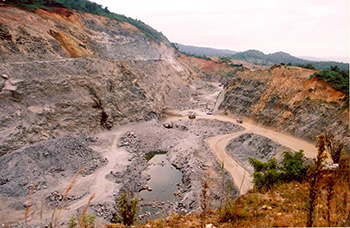
Each company grows based on its own kinds of business and environment. It’s very difficult to give a combined figure. If you were to ask what the total sales of the group was, about three years ago it was about 3.5 billion Birr and now we have reached 5 billion Birr. There are a lot of factors that govern the growth. The main factor for the group success comes from gold sale, and the price of gold has been very good for the last three years. We would still be profitable even if the gold price went down close to 1,000 US dollars simply because we have made sure our performance is efficient and cost effective as measured by production cost per ounces of gold.
Gold prices are down considerably from about 1900 an ounce to about 1200.
That has a very huge impact on the nation and the companies. As I said, MIDROC Gold Mine has been performing efficiently. Even at 1,200 US dollars, we will still be profitable but you lose a lot of revenue and the country loses a lot of money simply because royalties paid to the government are very important. A significant amount of what we earn from gold sale goes, one way or another, to the national treasury in a form of income tax project tax, and royalty.
You are a sort of General Electric of Ethiopia at the moment. Do you have any plans for expanding outside of Ethiopia?
Sheik Mohammed Al Amoudi, the owner of Midroc Investment in Ethiopia may have a plan to expand a little bit outside Ethiopia. We try to do a little bit of business with Sudan and South Sudan because one of the 20 companies that we have in the Technology Group is a small airline called Trans Nation Airways (TNA). In the past we have leased two of our airplanes to a company in Sudan. We would like to see if there is an opportunity in South Sudan when it comes to mining and airline operation that is in my agenda right now. At this stage, we are focusing on expanding (gold) mining within the country. The pre-feasibility study on a new gold mine at Metekel, which is located 500 km from Addis in the northern part of the country, is completed.
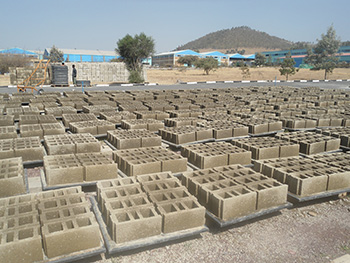
Do you have any statistics as far as the reserves of gold that you are exploring right now?
At this stage we are really in the pre-feasibility part of it. It is pre-mature to announce anything at this stage, but we made an announcement about two years ago that the potential for gold is there at Metekel. Gold mine announcements have steps and at this time the pre-feasibility indicates that we will most probably have mineable gold in Metekel. But to make the final decision and to go ahead and invest a lot of money to put in a processing plant, we will have to do a final bankable feasibility study. We are planning to do this in 2014. By the end of 2014 we should be able to announce in definite terms.
There are many opportunities to grow here in Ethiopia and untapped markets. Do you have any presence in the infrastructure market and do you also have any plan to expand into the telecommunication industry?
In my group no, but the owner of MIDROC had that vision 13 or 14 years ago. I am sure he is looking for the opportune moment to get involved. It is not a secret that at this stage, some of the key companies are still owned by the government. When the time comes for companies like Ethiopian Airlines, Telecommunication etc., to be privatized, I think that would be a good opportunity for MIDROC to get involved.
Currently, the government is trying to make sure that they get involved in areas where investors are not yet involved. Some people don’t like that and some people don’t comprehend why, but I believe that the government has to work like any other investor or company in some selected areas until the private sector steps in and does what the government does. MIDROC will be in a position to get involved in those areas that are now being held by the government. MIDROC has acquired the largest member of privatized companies (in monetary terms) in the country. Further acquisition and engagement depends on my chairman and how much he wants to be involved. From where I stand, whatever investments he gets involved with I will execute it very well.
Do you have any plan on going public in the marketplace sometime in the future to give people an opportunity to be part of this large conglomerate?
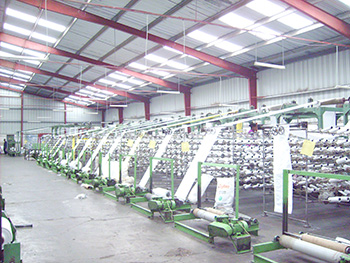
I think they have started doing that in the banking industry. I understand some of the private banks are selling shares. I am not sure about MIDROC. That all depends on the owner of these companies. Becoming public has some value and I see that. It’s not something new. The western world has benefited from it. It’s a question of time and a question of whether this is the right time to do that. But going public is something that is very important and I believe in it. It’s just a question of time. If the owner decides to do that, I will support it.
It can add tremendous value and give you an opportunity to do…
If you are in business, you cannot do everything out of your own money. You have to minimize the risk, by involving other stakeholders and have joint ventures. It’s a developing and an emerging country when it comes to this kind of business. If you don’t introduce those good elements that are needed for good business and involve people, and we have over 80 million here, how do you get new players in business, in the country?
Do you have any footprint in the banking sector?
Technology Group does not have that. The 20 companies I have are all listed on our website. There are quite a number of privet banks in the country. Banks at this stage are not owned by foreigners. That time will come for sure, but the government at this stage is not opening it up for foreigners. As a result, my chairman is not directly involved with the sector.
Do you still plan to grow organically within the group or do you have plans for some acquisitions?
Actually MIDROC Investment has done a lot of acquisition when it comes to privatization. As you know, the government has privatized a lot of companies, including MIDROC Gold Mine, and Sheik Mohammed was the first one to really acquire quite a number of companies years back and recently too. The government is still privatizing more companies. So if an opportunity arises, and we get a company that has got some kind of synergy with Technology Group, we always bid and compete. Expansion in a company or group has to be a part of our exercise. We cannot stop thinking about growth and expansion.
We would still be profitable even if the gold price went down to 1,000 US dollars simply because we have made sure our performance is efficient and cost effective as measured by production cost per ounces of gold.
Expansion could be by acquiring, by joining, or creating something new. Some of the 20 companies are acquired by privatization and some of them we started/created simply because there was a need to have some kind of synergy within.
Within the Group, I have one company called Huda which is engaged in real estate. The same company also has a license to operate as a construction company. Huda is constructing a stadium, named after our Chairman Sheikh Mohammed Hussein Ali Al Amoudi, in Woldia town, where the Chairman and myself grew up. The tallest building Nani, belongs to Huda. At present, we have real estate and construction operations, and most probably we will soon expand into road construction. There are more roads to build in this country than buildings.
Have you always been self-financing or do you turn to the debt market sometimes?
We have been self-financing and investment mainly comes from the owner. The group does not have any debt per se. I don’t say that it is a good thing to do so. You have to involve banks and financial institutions simply because both the bank and the investor benefit from the exercise. So, as I said earlier, slowly we are opening up and trying to get financing from banks.
They say debt tightens a company so to speak and it is a good thing.This is very, very important. We have a culture in this country (unlike America) where people don’t like debts. We have to learn how to make use of loans from banks. We have to expand and get into the financial institutions and have them get involved in our investments for mutual benefit. That is what I hope to see in the near future.
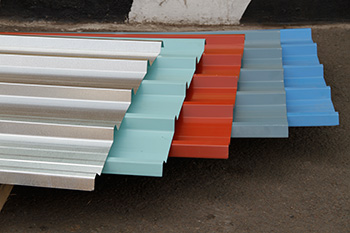
When I say debt I mean you take a loan and that becomes your debt and you have to pay. First of all one has to learn how to manage loans; that is very important and it takes a bit of time to install the culture. People have to be courageous enough to make use of banks to expand their business.
One of the benefits of going public, as you probably know, is that there are a lot of things you can do with a public company that you cannot do with a private company. Plus it can inflate the value of the enterprise, sometimes by as much as tenfold. What is your vision for the group going forward?
The number one challenge for the Technology Group is to be efficient and productive in our operations. The influx of new investors coming to the country put pressure on our companies in a form of competition. That’s good and positive but it’s a challenge that demands a paradigm shift in our competition strategy and practice.
Second, regarding manpower, these new companies are going to employ some of our trained employees so we have to make sure we are providing training to additional employees to safeguard the issue that may result from the difficulty of retaining our experienced employees. You don’t stop people from going from one company to the other. Some people get training and work experience at Technology Group and then become employees of other institution. This is their right, so we have to be in a position to have replacements, hence training people is very important.
Third, the government is coming up with new laws and regulations which are needed to enhance the economic growth of the country. Yesterday’s laws do not necessarily apply for today’s activities, and tomorrow will entertain even more changes. As a result, we need an operation that can be flexaible and adoptable to the changing environment. For example, paying tax was not seriously handed in the past. Now, paying tax is very important. People have to pay tax because if you don’t pay tax, you don’t have roads, police, power, and all those essential services and infrastructure. The money you are paying in the form of a tax is not really going to the government; it goes to the country.
Our vision is to make sure these challenges are being met, that the manpower development is there and that our focus is on people and operational efficiency. It is also important to make sure that we are always ready to constructively engage with the government so that we can become a party to the growth and development of the nation.
FAIR USE POLICY
This material (including media content) may not be published, broadcasted, rewritten, or redistributed. However, linking directly to the page (including the source, i.e. Marcopolis.net) is permitted and encouraged.